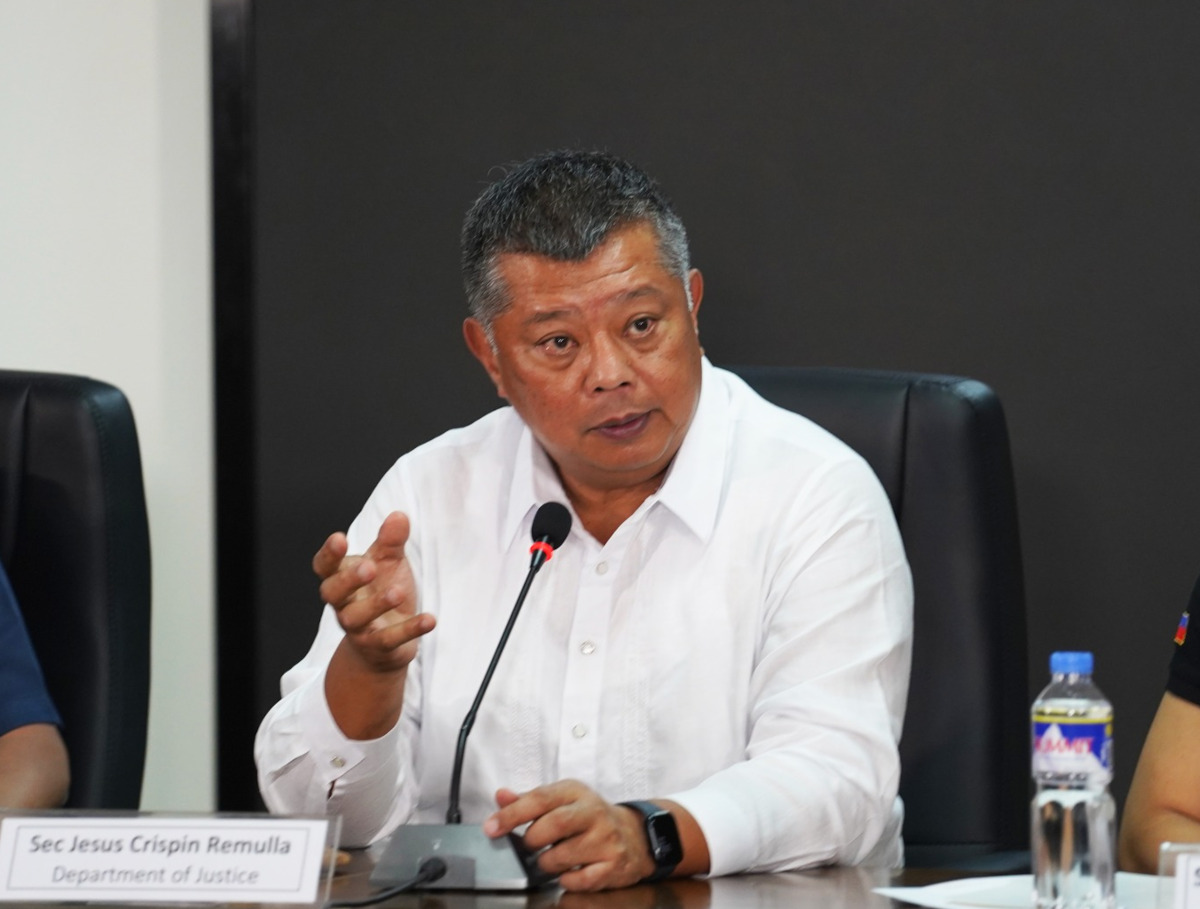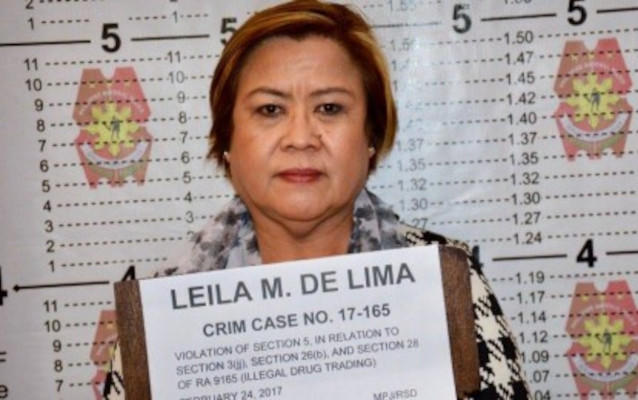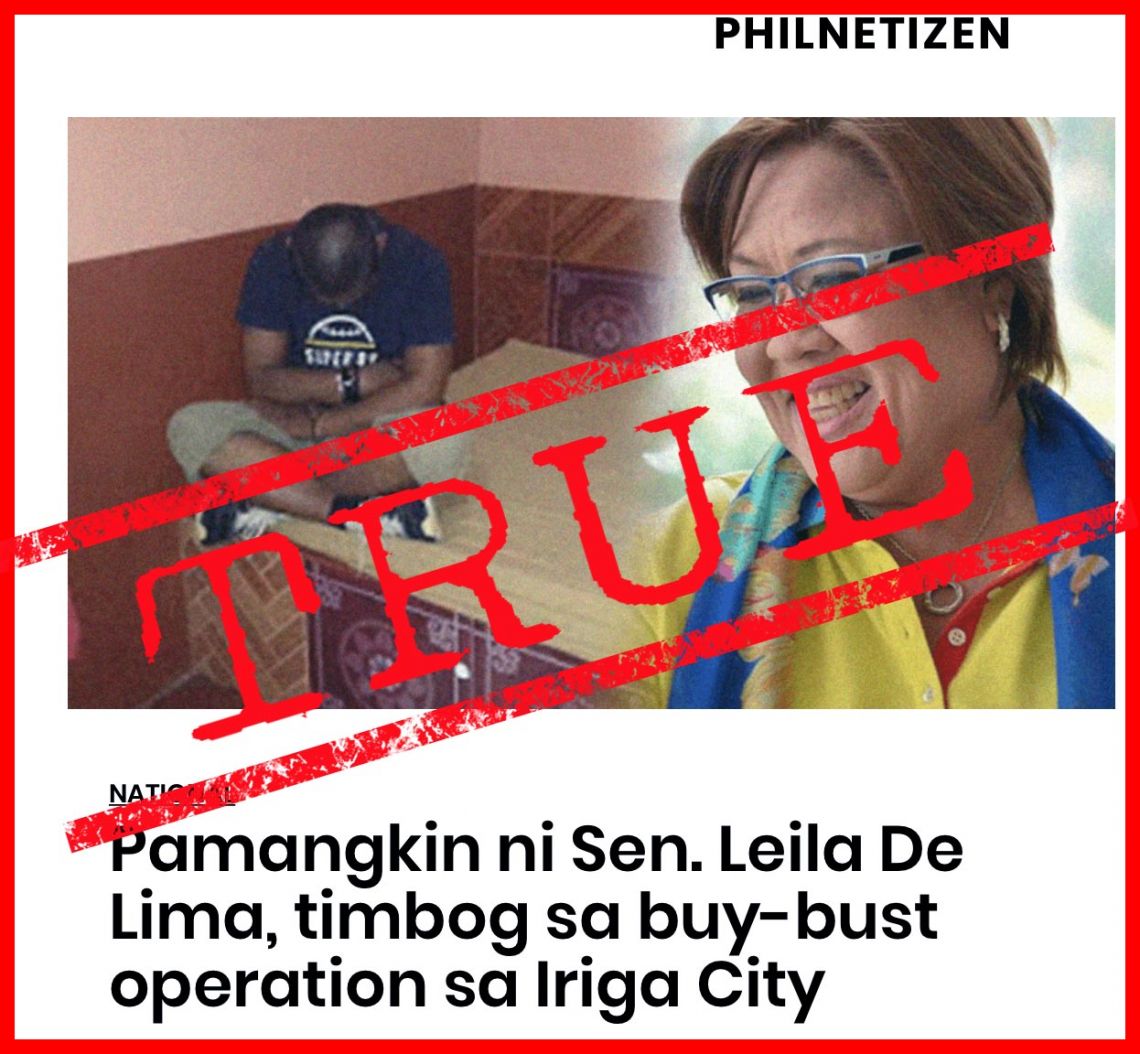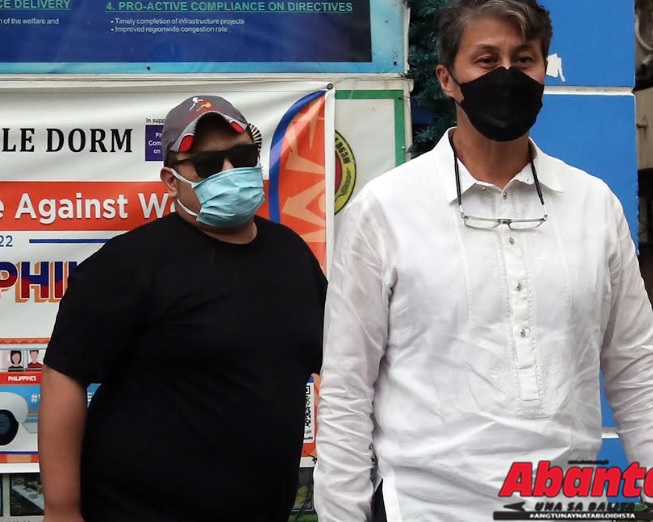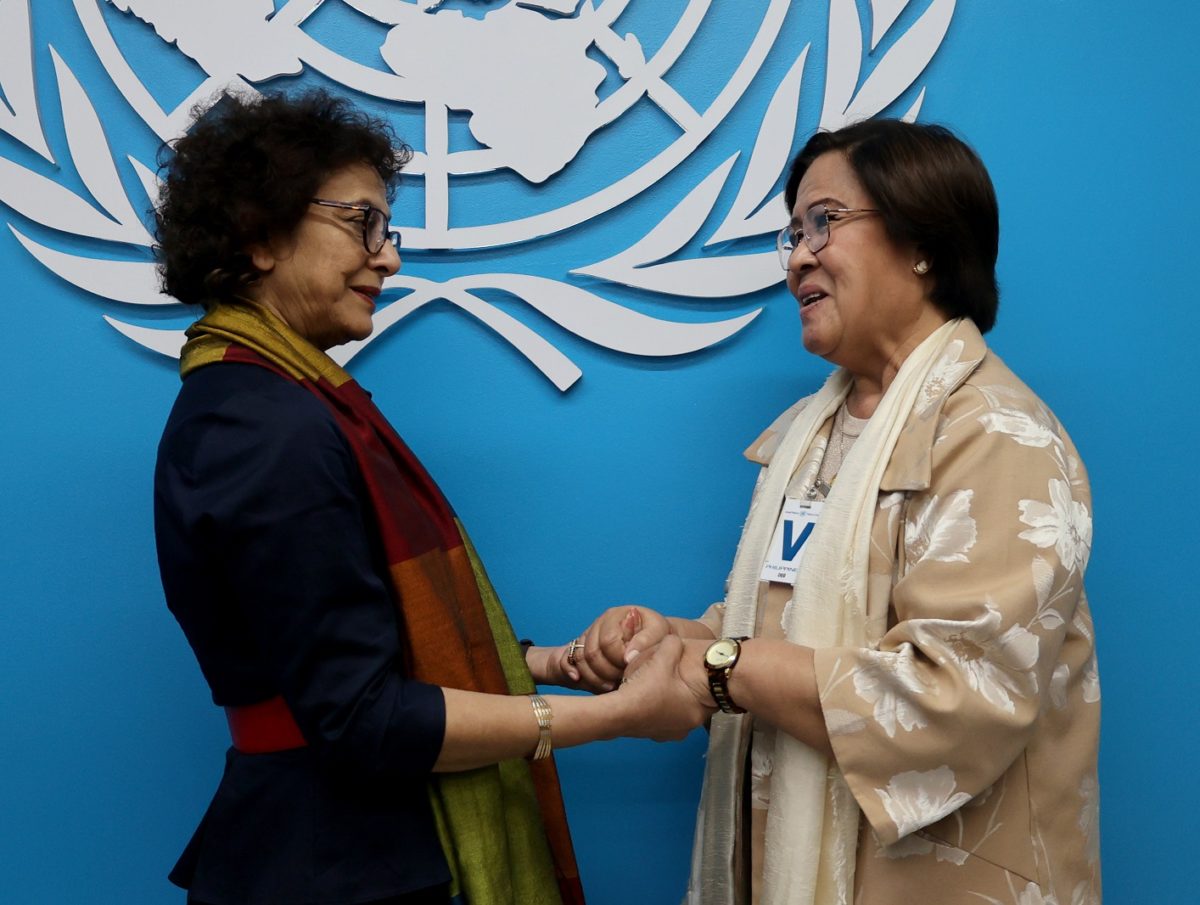“The rule of law has prevailed … It just means that democracy is working,” Justice Secretary Jesus Crispin “Boying” Remulla thus declared following last Friday’s acquittal of former senator Leila De Lima on the second of three drug cases for which she has been detained for more than six years.
“It just points out to us that the independence of the judiciary is a basic foundation of our democratic system,” Remulla added. “It’s good. It’s good for us. It just proves that things are working in our country.”
Those were calculated statements which the Justice secretary could use to assert the government’s position that the International Criminal Court (ICC) should stay away from investigating the alleged crimes against humanity committed in the conduct of the bloody drug war during the Duterte administration.
Remulla has vowed to prevent the ICC from imposing upon the Philippines, invoking its sovereignty and insisting that the country has a functioning judicial system that can handle the drug war probe.
Well, Judge Abraham Alcantara of the Muntinlupa City Regional Trial Court’s Branch 204 indeed showed the court’s independence when he proceeded with the promulgation of the case — conspiracy to commit illegal drug trading — despite the Justice department’s efforts to impede the process and prolong De Lima’s legal battle by seeking to reopen the proceedings even after the parties had agreed to submit the case for decision.
De Lima was accused of receiving P10 million from former Bureau of Corrections (BuCor) officer in charge Rafael Ragos to supposedly fund her 2016 senatorial bid. The money purportedly came from high-profile NBP inmates.
Remulla wanted the prosecution to provide rebuttal evidence in connection with the testimony of Ragos, who recanted his allegations against the former senator and revealed that he had been coerced by former Justice secretary Vitaliano Aguirre into pinning down De Lima.
Remulla is now saying that the Muntinlupa court’s decision to acquit De Lima validates his assertion of judicial independence, noting that the judge was an appointee of De Lima’s nemesis, former president Rodrigo Duterte.
But then he said an acquittal “does not mean there’s absolutely no guilt.” He said, however, that it was “nice” that De Lima had been acquitted.
Perhaps we can apply the same logic to the acquittal of his eldest son, Juanito Jose Remulla III, for possession of illegal drugs. The younger Remulla was arrested on Oct. 11 last year after receiving a package from the United States with 900 grams of kush, or high-grade marijuana, valued at P1.3 million, based on a controlled delivery conducted by agents of the Philippine Drug Enforcement Agency and the NAIA Inter-Agency Drug Interdiction Task Group.
He entered a “not guilty” plea on Nov. 4 and Las Piñas City Regional Trial Court Branch 197 Judge Ricardo Moldez II came out with a “not guilty” verdict on Jan. 6 this year “on the ground of reasonable doubt.”
In De Lima’s case, she and her supporters have described since her arrest in 2017 that the three drug charges filed against her were “fictional” or “trumped-up,” which Remulla has countered.
De Lima, who served as Justice secretary before she was elected to the Senate in 2016, has one more case pending. She is accused of tolerating the “widespread drug trade” inside the maximum security compound from May 2013 to May 2015. This has a pending petition for bail which was set for decision on May 8 but was deferred to resolve “inconsistencies” in the markings of the prosecution’s offered evidence.
In that case pending before the Muntinlupa City RTC Branch 256, Remulla said the Justice department would not oppose the bail petition if de Lima’s camp would base it on humanitarian grounds only.
Is Remulla testing the independence of the court by attempting to use the law in pressuring De Lima’s camp to abandon its position in seeking her temporary release based on the merits of the case and agree that her bail petition be based on humanitarian grounds?
If the court grants De Lima’s assertion that she should be granted bail for lack of evidence pending the resolution of the third and last drug case she’s facing, Remulla can again claim that the court has exercised its independence. By insisting that De Lima’s camp seek bail on humanitarian grounds, it appears that Remulla knows well the weight of the prosecution’s evidence against the former senator. That’s why he supports his people’s move to block the bail petition if it’s based on merit.
The views in this column are those of the author and do not necessarily reflect the views of VERA Files.
This column also appeared in The Manila Times.
